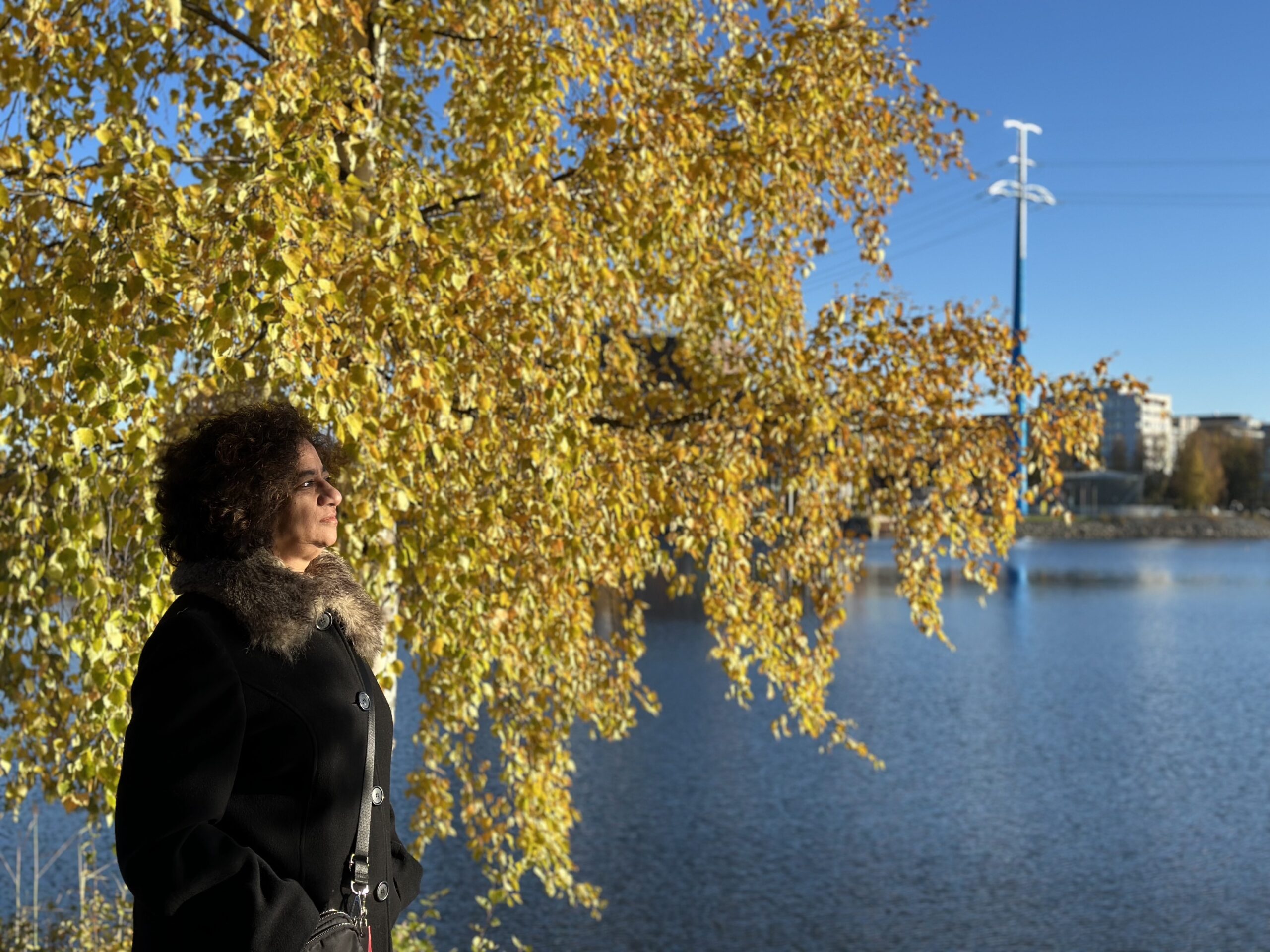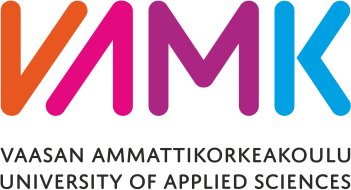
Highly skilled migrant women wish employers to be open-minded in order to improve their employability
Highly skilled migrant women face challenges and inequalities as jobseekers, despite their skills and experience. Vaasa University of Applied Sciences’ Design Centre MUOVA participated in the Erasmus+ funded MentoraSTEAM project that ended in August 2023. MentoraSTEAM project empowers the confidence, employability and employability skills of migrant women with a STEAM background (science, technology, engineering, arts and mathematics) to boost their employability.
Seema Ganoo, an electrical engineer born in India, has adapted to her new country and culture several times, which has been challenging as a jobseeker. She wishes companies would be more open to migrants and wonders why many positions still require Finnish or Swedish skills when the working language is English.
Moving, changes and adapting
Seema Ganoo moved with her family from India to Vaasa in January 2004, for her husband’s work, not thinking that after almost twenty years, Finland and Vaasa would still be their home. However, Ganoo and her family have not spent 20 years in Vaasa but have also lived in Malaysia and Canada over the years. When they moved to a new country, everything was different – the climate, the culture, and the language. Ganoo stayed at home when the children were small to support them and to give them something permanent.
In India, Ganoo worked as an electrical engineer for almost 14 years with a local power utility company. While living in Finland and Malaysia, Ganoo was involved in the PTA activities, which gave her the opportunity to support school events and to assist in publication of the school magazine for four years. Since 2018, Ganoo has been writing a series of food columns called “Seema’s Food” for Vaasa’s local Mega media. While still working as an electrical engineer, Ganoo never thought she would one day be a columnist. But now she would like to do something she gets paid for.
Challenges in applying for a job as a migrant woman
In August 2023, Vaasa University of Applied Sciences’ Design Centre MUOVA organised an event as part of the MentoraSTEAM project, with the participation of highly skilled migrant women and representatives of organisations that work closely with them. Ganoo was one of the migrant women who participated. The participants discussed and identified together the challenges of employment as a migrant woman. The challenges that emerged from the discussions were gender inequality, lack of support and necessary information, discrimination against people with a migrant background and lack of Finnish and Swedish language skills. In addition to these themes, participants noted that those aged 50 and over experience age racism.
Ganoo highlights the challenges of language. She questions why Finnish and Swedish are still required in many workplaces and companies.
“It’s not about whether people know English in the workplace. They do. It’s about the attitude. In most cases, the professional working language is English anyway”, Ganoo points out.
Particularly in Vaasa, the bilingual nature of the city provides an additional challenge. So instead of having to learn one foreign language, you have to learn two. Ganoo has taken language courses in both Finnish and Swedish, but the years away from Finland have not made things any easier, as language skills are easily forgotten if not practised and spoken.
Better opportunities through networking
The event in August explored solutions and help to overcome the employment challenges faced by people with a migrant background. At the event, migrant women had a chance to express their wishes for better opportunities for employment. The wishes were then discussed together. One of the core findings was that those who support migrant women do not necessarily know about each other, which is why it would be a good idea to build up a network between these actors. The network would communicate about the different actors, projects, and results, such as training materials and their benefits.
“We will keep the idea of a network in mind. We will explore it and see how we can push this forward”, says Tanja Oraviita, International Project Manager from MUOVA.
One of the key points to improve employment opportunities was the idea of a “speed dating” event between companies and migrants. This could eliminate prejudices and increase the chances to get a call for a job interview. Ganoo says she applied for marketing and communications positions, but to her disappointment, despite years of experience, she was not even invited to an interview. She wonders whether it would be possible to get at least an internship in a company, to have a chance to prove her skills.
“Vaasa being energy cluster where most companies are looking for well qualified and experienced electrical engineers, it is ironical I didn’t get any response to job applications made for various positions, states Ganoo”, and continues:
“I am an engineer, but over the years I have gained experience as a volunteer and columnist, so in addition to my engineering competence, my skills include multicultural communication and coordination. I write about food, but I can also write about technical documentation, product presentations and other engineering items. Why am I not invited for an interview? What is it that is lacking? Give me a chance! It’s a real challenge to apply for a job”, she concludes.
In the framework of the MentoraSTEAM project, a Guide for policymakers boosting female migrants’ employability in the STEAM sectors was developed. It is intended for policymakers, support organisations and stakeholders, including information on issues such as the deskilling, mismatch underemployment and employability skills and the impact of these on productivity of the host countries. The guide is available in English here.
Project info
MentoraSTEAM was a three-year project (2020-2023) funded by the European Programme Erasmus+. MentoraSTEAM contributed to spotlight the inequalities and challenges highly skilled migrant women experience when they access the labour market. Across Europe the project aimed to enhance highly skilled migrant and second-generation women’s employability in Science, Technology, Engineering, Arts and Mathematics (STEAM). MentoraSTEAM was implemented by a project consortium from Finland, England, Spain and Italy.
Project duration: 1.9.2020-31.8.2023
Funding programme: EU, Erasmus+
Project number: 2020-1-UK01-KA202-078834
More about the project on the MentoraSTEAM website.
For more information
Tanja Oraviita
Project Manager, International Projects
Design Centre MUOVA
Tel. +358 40 1632940
tanja.oraviita@muova.fi

